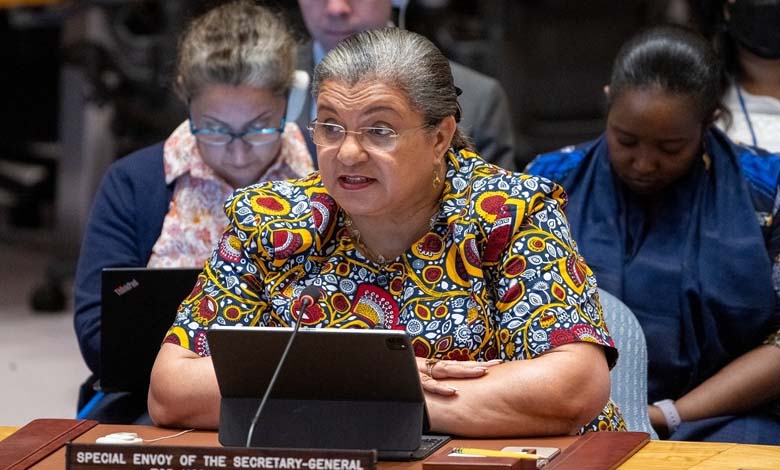Ghanaian Hanna Tetteh Appointed UN Envoy to Libya after Months of Vacancy

The new UN envoy will face complex challenges in Libya, which her predecessors failed to resolve, particularly the state of division, foreign interventions, and the influence of militias.
United Nations Secretary-General António Guterres announced on Friday the appointment of Ghanaian Hanna Serwaa Tetteh as the UN’s special envoy to Libya, succeeding Senegalese Abdoulaye Bathily, who resigned last April. The UN has so far been unable to bridge the gap between warring factions in Libya, which continues to suffer from division and chaos.
-
The UN envoy to Libya talks about the difficulty for the country to overcome the current crisis, Details
-
Libya’s Muslim Brotherhood efforts to sow chaos after appointing a new UN envoy
A former Foreign Minister of Ghana and the UN Secretary-General’s Special Representative for the Horn of Africa since 2022, Tetteh becomes the tenth person to hold this sensitive post since 2011, as a special envoy and head of the United Nations Support Mission in Libya. The appointment still requires approval by the UN Security Council.
The new UN envoy will face critical issues in Libya, including the unprecedented division of state institutions, foreign interference, as well as the influence of militias and their refusal to disarm.
-
UN envoy stated that Libya discussions reached breakthrough about election roadmap
-
The hopes of Libyans rest on a political breakthrough with elections next year
France has exerted pressure on the UN to appoint a new envoy to Libya and conduct a comprehensive review of the mission’s approach to the country’s political crisis.
A report published a month ago by “Africa Intelligence” revealed that France seeks “to subject the mission to a comprehensive strategic review to assess the effectiveness of its operations and identify its shortcomings.”
Permanent members of the Security Council, including Russia, have also pushed for the appointment of a new envoy. Russian Foreign Minister Sergey Lavrov previously stated the urgency of filling this vacancy. However, the Libyan crisis is far more complicated than mere disagreements over appointing a UN envoy.
-
A New Crisis in Libya Impedes Negotiations for Forming a Unified Government
-
The Libyan Eastern Government Searches for Abducted Deputy
The UN’s efforts over the years since the fall of Colonel Muammar Gaddafi in 2011 to reconcile Libyan factions have largely failed, despite some hope in recent years.
The post has been vacant since the unexpected resignation of Abdoulaye Bathily in April, who stated at the time that the UN could not “operate effectively” in supporting the political process in Libya, due to leaders prioritizing their “personal interests” over the “needs of the country.”
Bathily, who was appointed in September 2022, tried various approaches to resolve the Libyan crisis but failed to bring Libyan leaders to the negotiating table.
-
Libya Caught in the Crossfire of Great Power Rivalries… What Are the Possible Scenarios?
-
After the arrest of a State Council Deputy in Derna… Libya’s Brotherhood obstruct solution initiatives again
Libya has been engulfed in political and security chaos since the fall of Muammar Gaddafi in 2011 following a popular uprising supported by NATO.
Despite efforts by the interim head of the UN Support Mission, Stephanie Williams, to advance the peace process, organize elections, and unify the government, these initiatives have been thwarted by numerous obstacles, including foreign interference and the dominance of militias.
In recent months, the UN has intensified its efforts to contain political tensions and military escalation in Libya, especially amid the Central Bank crisis and alarming military movements in the western region, raising fears of a return to widespread violence.












